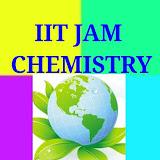Microbiology:-
Microbiology is the study of macroscopic Organisms like bacteria, viruses, archaea, fungi, protozoa etc. This discipline includes fundamental research on the biochemistry, physiology, cell biology, ecology zoology, evolution and various clinical aspects of microorganisms, including the host response to these agents.
Glycolysis:- It is the process of break down glucose into two molecules of pyruvate. It produces ATP and is the first stage of cellular respiration. Glycolysis can occur with or without oxygen. In the presence of oxygen, glycolysis is the first stage of cellular respiration. In the absence of oxygen, glycolysis allows the cells to make small amount of ATP through the process of fermentation. Glycolysis takes place in the cytosolic of the cell's cytoplasm. However, in the next stage of cellular respiration is a cycle, known as citric acid cycle that occyocin the matrix of mitochondria's cell.
Metabolic pathway:- In biochemistry, a metabolic pathway is a linked a series of chemical reactions occuring occuring within a cell. The reactants, products and intermediates of an enzymatic reaction are known as metabolites, which are modified by a sequence of chemical reactions catalyzed by enzymes.
Pyruvic acid:- It is the simplest of the alpha-keto acids, with a carboxylic acid and a ketone functional group. Pyruvate is the conjugate base. And it is a key intermediate in several metabolic pathways throughout the cell.
Pyruvic acid can be made from glucose through glycolysis, it converted back into carbohydrates (such as glucose) via Gluconeogenesis.
Microbiology is the study of macroscopic Organisms like bacteria, viruses, archaea, fungi, protozoa etc. This discipline includes fundamental research on the biochemistry, physiology, cell biology, ecology zoology, evolution and various clinical aspects of microorganisms, including the host response to these agents.
Glycolysis:- It is the process of break down glucose into two molecules of pyruvate. It produces ATP and is the first stage of cellular respiration. Glycolysis can occur with or without oxygen. In the presence of oxygen, glycolysis is the first stage of cellular respiration. In the absence of oxygen, glycolysis allows the cells to make small amount of ATP through the process of fermentation. Glycolysis takes place in the cytosolic of the cell's cytoplasm. However, in the next stage of cellular respiration is a cycle, known as citric acid cycle that occyocin the matrix of mitochondria's cell.
 |
| Glycolysis |
Metabolic pathway:- In biochemistry, a metabolic pathway is a linked a series of chemical reactions occuring occuring within a cell. The reactants, products and intermediates of an enzymatic reaction are known as metabolites, which are modified by a sequence of chemical reactions catalyzed by enzymes.
Pyruvic acid:- It is the simplest of the alpha-keto acids, with a carboxylic acid and a ketone functional group. Pyruvate is the conjugate base. And it is a key intermediate in several metabolic pathways throughout the cell.
Pyruvic acid can be made from glucose through glycolysis, it converted back into carbohydrates (such as glucose) via Gluconeogenesis.
.jpg)


No comments:
Post a Comment